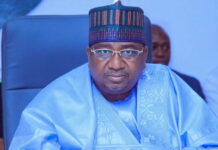By Felicia Imohimi
The Medical Laboratory Science Council of Nigeria (MLSCN) on Wednesday called for increased funding of the council to enable it to effectively perform its statutory functions.
Mr Tosan Erhabor, the Acting Registrar of the council, made the call when a delegation from the National Institute for Policy and Strategic Studies (NIPSS) visited the council in Abuja.
Erhabor decried the poor funding of the council, saying its allocation had continued to dwindle over the years, making it difficult for it to deliver effective laboratory services nationwide.
He expressed regret that lack of adequate funds had made it difficult for the council to set up well-equipped offices in the 36 states of the federation and FCT.
“In 2014 the council’s approved budget was N159 million; today, only N63 million was released.
“In 2015, the capital appropriation was N20 million; out of this, only N9.4 million was released.
“Similarly in 2016, N15 million was allocated, but only N6.4 million was released.
“In 2017, there was a little improvement; out of N105 million allocated, only N50 million was released.
“In 2018 N38 million capital was allocated.
“Considering this analysis, government’s financial support is not helping the institution.
“Apart from training, the capital is going down slowly and there is need to equip zonal offices, purchase utility vehicles and infrastructure for improved service delivery.
“Equipping the zonal offices is capital intensive and there is no way we can finance those projects except we have the support of the government.
“The council’s revenue is not only dwindling but is going down and is not helping us,” Erhabor lamented.
He listed other challenges bedeviling the council to include non-inclusion of licensed laboratory personnel in the basic healthcare package, quackery, and poor health outcomes due to unreliable test results,
He said that the aforementioned issues constituted an impediment to the realisation of Universal Health Coverage (UHC) 2030.
The acting registrar decried the employment of non-licensed personnel to man medical laboratories in the country, saying it was inimical to the profession and to the realisation of UHC 2030.
He said it was regrettable that health facilities across the country lacked qualified professionals, a situation he described as a menace and unhealthy for the profession.
The acting registrar, who lamented the absence of laboratory scientists at the various primary health care centres across the country, being the basis of UHC however, identified the gap as inimical to the nation’s quest to achieve UHC by 2030.
“The major challenges bedeviling the council is inadequate budgetary allocation for effective regulation.
“We lack operational vehicles, additional infrastructure especially at the state level, general maintenance as well as dwindling support from partners.
“Other challenges are quackery, which is due to non-inclusion of Laboratory science practitioners in minimum health care package.
“In order to stem quackery in the profession and ensure quality assurance, all hospitals, laboratory outfits across the country must recruit qualified medical laboratory scientists with current license or registration.
“All government-owned hospitals must key into External Quality Assurance (EQA) and medical laboratory accreditation,” he stated.
Earlier, Cdr. Kehinde Odubanjo, Team Leader of the delegation, noted that the study tour was a facts-and-figures-finding mission in the council’s efforts at achieving UHC 2030 and overcoming obvious challenges before MLSCN.
He said that the institute was established by the Federal Government to tackle particular problems in the country, especially in view of the theme for this year’s study tour: ‘Funding Universal Health Coverage’.
He emphasised that NIPSS was not out to investigate the council, but to get to the root of the factors militating against the nation’s efforts toward achieving UHC.
Odubanji said that the findings of the institute would be tabled before President Muhammadu Buhari.
“The outcome of the research will be presented to the President, where the problem lies in this country and where we can tackle it to make health better in the nation.
“We will also take a study tour of six states in North and six in the Southern part of the country and then proceed to African countries to see how it is done there and how and why they are able to succeed.
“We will also do intercontinental tour to Europe and other countries to find out how particular people were able to succeed in UHC; but charity begins at home.
“Hence we started from here to know where our problem is,” he said.
The MLSCN Mandate as stipulated in Section 4 of Act 11 2003 establishing it confers on the agency the responsibility to regulate the practice of Medical Laboratory Science in the country.
The council, among other things, is expected to determine from time to time the standard of knowledge and skill to be attained by persons seeking to become Medical Laboratory Scientists, Medical Laboratory Technicians and Medical Laboratory Assistants (referred to as Scientists, Technicians and Assistants)
Culled from: Source



